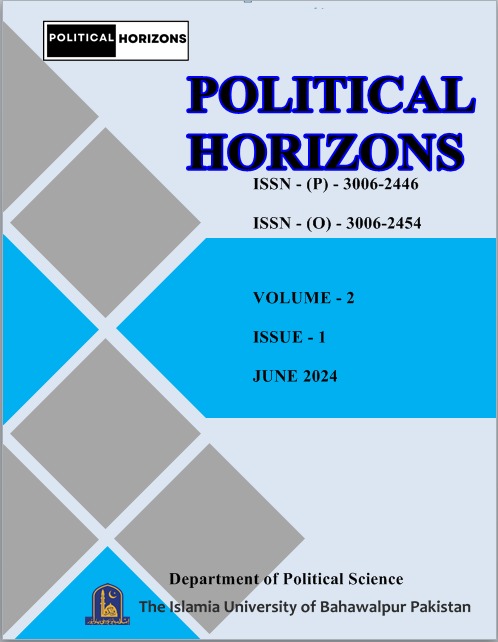Pursuing National Integration
Role of Federalism in Pakistan after 18th Amendment
Abstract
Federalism provides equal opportunities to the sub-regional groups in a state having diverse socio-political and ethnic identities. The process of national integration is more effective under federalism than any other form of governance. It isfundamentally considered ‘unity in diversity’ model for the states having federal form of governance structure. After 18th amendment, federalism in Pakistan has found new avenues to re-integrate the provincial identities, cultural groupings, political sub-regionalism and administrative hierarchy. This process focused on the transformation of the process of democracy, good governance, institutionalism and federalism. This research presents a model of national integration which has been emerged in the aftermath of 18th amendment. State institutionalization, democratization and inclusive federalism are the three important characteristics of this model. The main argument of this paper is, “a consistent and stable decentralization process in the present form of federalism can enhance the process of national integration in Pakistan”. Furthermore, this study concludes that, constitutional supremacy and the institutional working is very important for developing national integration process in Pakistan.
Keywords: National Integration, Pakistan, 18th Amendment, Federalism, State Institutionalization

Downloads
Published
How to Cite
Issue
Section
License
Copyright (c) 2024 Muhammad Faisal, Muhammad Aslam Faiz, Muhammad Saleem

This work is licensed under a Creative Commons Attribution-NonCommercial 4.0 International License.




